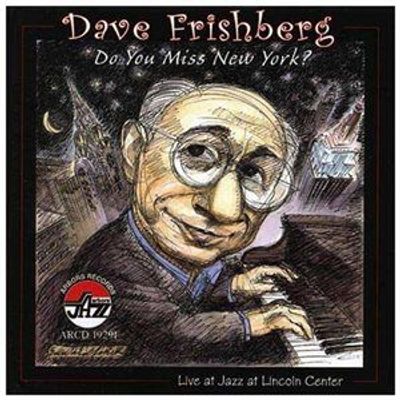Nathan Milstein plays the prelude to Bach’s E Major Partita for Solo Violin in an undated telecast:
(This is the latest in a series of arts- and history-related videos that appear in this space each Monday, Wednesday, and Friday)
Terry Teachout on the arts in New York City
Nathan Milstein plays the prelude to Bach’s E Major Partita for Solo Violin in an undated telecast:
(This is the latest in a series of arts- and history-related videos that appear in this space each Monday, Wednesday, and Friday)
“Nature is merciful and does not try her children, man or beast, beyond their compass. It is only where the cruelty of man intervenes that hellish torments appear. For the rest—live dangerously; take things as they come; dread naught, all will be well.”
Winston Churchill, “My New York Misadventure” (Daily Mail, January 4 and 5, 1932)
* * *

Somewhere along the way, Mr. Frishberg discovered that he had a knack for writing songs. Unlike most people who make that discovery, though, he then put himself through a rigorous course of self-training and turned into something so improbable as to boggle the minds of those who know what it takes: He is now the last of the old-time professional songwriters. He was influenced not by James Taylor or Ani DiFranco but by Frank Loesser, who wrote the scores for “Guys and Dolls” and “How to Succeed in Business Without Really Trying.” “There was dignity in everything Loesser wrote—no cheap lines, no cheap rhymes,” Mr. Frishberg has said. “He made the vernacular classy.” The fact that he embraced the fine art of golden-age songwriting long after the golden age of songwriting was over and done with didn’t faze him: Mr. Frishberg, who calls himself a “retromaniac,” is not only content to live in the past but prefers to do so. For him, nostalgia is not merely a state of mind but a way of life.
I know plenty of aging jazz musicians who don’t much care for the directions in which American popular music has traveled during the past half-century. Some are grumpy about it, others downright choleric. Mr. Frishberg runs more to the former than the latter, but his longing for days gone by is productive, not angry. Instead of cursing the darkness, he prefers to write superlatively well-crafted songs that sound as though he’d sat down in a time machine, set the controls to 1950 or 1961, and come back with a song…
* * *
Read the whole thing here.Dave Frishberg sings and plays his “Do You Miss New York?”:
“The story of the human race is war. Except for brief and precarious interludes, there has never been peace in the world; and before history began, murderous strife was universal and unending.”
Winston Churchill, “Mankind Is Confronted by One Supreme Task” (News of the World, November 14, 1937)
Elaine Stritch sings “It Amazes Me,” by Cy Coleman and Carolyn Leigh, at a 2005 92nd Street Y tribute to Coleman. She is introduced by Robert Goulet:
(This is the latest in a series of arts- and history-related videos that appear in this space each Monday, Wednesday, and Friday)
“He had that ruthless side without which great affairs cannot be handled.”
Winston Churchill, Great Contemporaries
From 2009:
Read the whole thing here.As the house lights went down just before nine o’clock last night in preparation for the second performance of The Letter, lightning crackled in the distance and dark clouds scudded across the moon that shone down on Santa Fe. Paul Moravec pointed up and said, “Look—it’s just like the first scene of the movie!” And sure enough, it was….
“The Muse of History must not be fastidious. She must see everything, touch everything, and, if possible, smell everything. She need not be afraid that these intimate details will rob her of romance and hero-worship. Recorded trifles and tittle-tattle may—and indeed ought—to wipe out small people. The can have no permanent effect upon those who have held with honour the foremost stations in the greatest storms.”
Winston Churchill, Great Contemporaries
| M | T | W | T | F | S | S |
|---|---|---|---|---|---|---|
| 1 | 2 | 3 | 4 | |||
| 5 | 6 | 7 | 8 | 9 | 10 | 11 |
| 12 | 13 | 14 | 15 | 16 | 17 | 18 |
| 19 | 20 | 21 | 22 | 23 | 24 | 25 |
| 26 | 27 | 28 | 29 | 30 | 31 | |
An ArtsJournal Blog